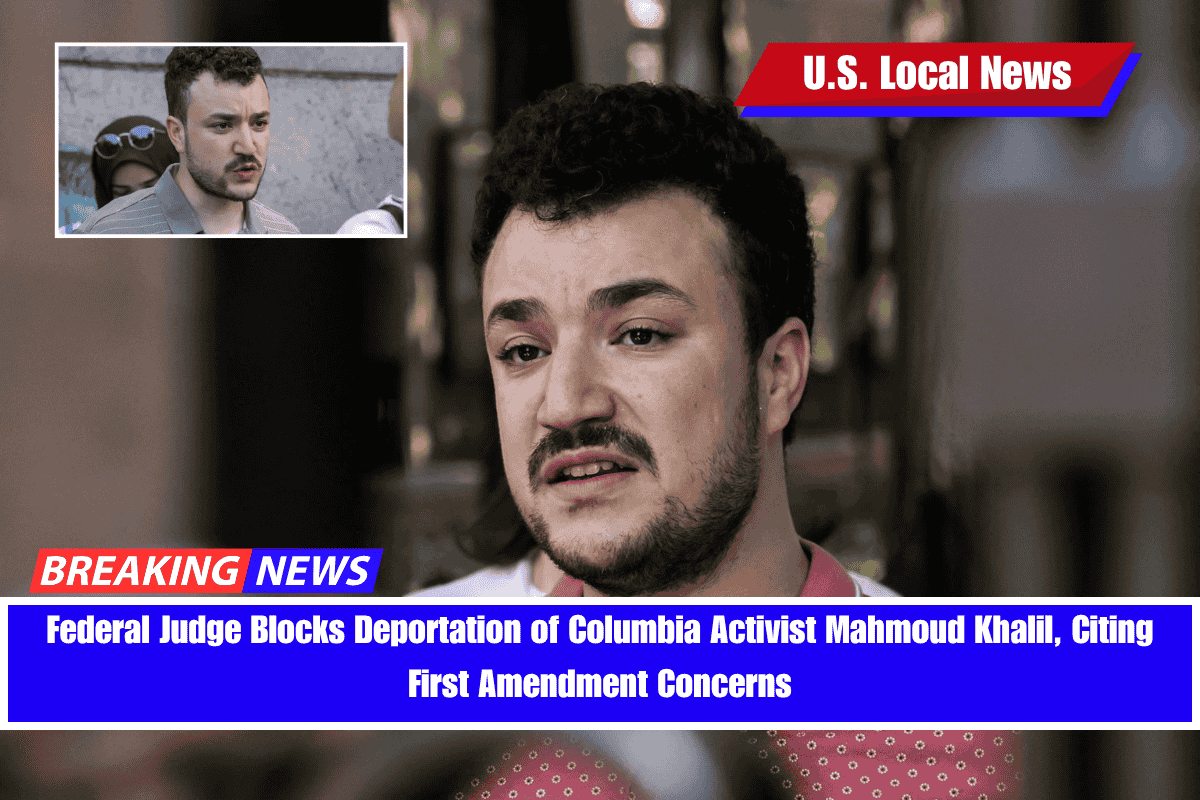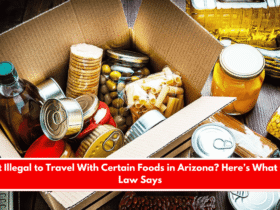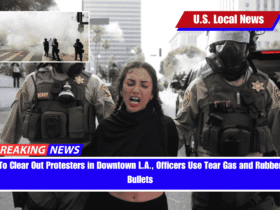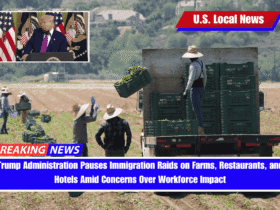A federal judge has ruled that the U.S. government cannot deport or detain Columbia University activist Mahmoud Khalil for foreign policy reasons cited by the Trump administration.
This preliminary injunction, issued by U.S. District Judge Michael Farbiarz in New Jersey, deals a significant blow to the Trump administration’s attempt to remove Khalil, a green card holder who was detained by immigration agents in March and is currently being held in Louisiana.
The ruling marks a key moment in the ongoing legal battle over the deportation of international students linked to pro-Palestinian activism.
Court Ruling and Injunction
Judge Farbiarz’s decision focuses on the Trump administration’s attempt to deport Khalil based on the Secretary of State’s assertion that his “presence or activities would compromise a compelling U.S. foreign policy interest.”
Farbiarz had previously indicated that attempting to deport Khalil for this reason was likely unconstitutional but stopped short of issuing an injunction.
However, on Wednesday, the judge found that Khalil’s career and reputation were being harmed and that his freedom of speech was being restricted, which added up to “irreparable harm.”
This ruling places a temporary halt on the government’s efforts to deport Khalil, although it will not take effect until Friday morning, giving the government a chance to appeal. Importantly, Farbiarz noted that his findings do not impact other potential reasons for Khalil’s deportation, such as alleged issues with his green card application.
The government had also cited that Khalil may have left out key details on his green card application, but Farbiarz pointed out that it’s uncommon for green card holders to be detained over omissions on their paperwork.
Background on Khalil’s Detention and Legal Challenge
Khalil’s detention and the government’s attempts to deport him are part of a broader push by the Trump administration to remove international students with links to pro-Palestinian activism.
Khalil, who is a vocal advocate for Palestinian rights, was detained by immigration agents earlier this year, and his case has garnered significant attention.
According to government lawyers, Khalil’s presence in the U.S. poses an “adverse foreign policy consequence” — a justification that has raised concerns among critics, who argue that this action infringes upon the First Amendment rights of students.
The Trump administration’s stance stems from a law that allows the government to deport individuals if the Secretary of State deems their presence to be harmful to U.S. foreign policy.
In Khalil’s case, Secretary of State Marco Rubio determined that his activism could undermine U.S. interests. Critics, however, argue that the government is punishing individuals for engaging in protected speech, specifically relating to their views on the Israeli-Palestinian conflict.
The Broader Context of Pro-Palestinian Activism
Khalil’s case is not isolated. Another Columbia student, Mohsen Mahdawi, a green card holder involved in pro-Palestinian protests, was detained after attending what he believed was a routine citizenship interview.
A judge later ordered his release, but Mahdawi, like Khalil, still faces the possibility of deportation. Additionally, Tufts University graduate student Rumeysa Ozturk was detained for several weeks after being accused of writing a pro-Palestinian op-ed for her campus newspaper, though she was also released following a court order.
These incidents have drawn significant backlash from civil rights advocates, who argue that the government is using deportation as a tool to stifle free speech and suppress activism, particularly among international students.
The cases have drawn comparisons to the Red Scare and McCarthyism of the 1950s, when individuals were targeted for their political beliefs.
Government’s Justification and Criticism
The Trump administration has defended its actions, claiming it has the right to revoke visas and deport individuals based on national security concerns and the potential impact on foreign policy.
Secretary of State Marco Rubio, in particular, has argued that the U.S. must take action against individuals he perceives as posing a threat to American interests. He stated in March, “We do it every day. Every time I find one of these lunatics, I take away their visa.”
However, critics have been vocal in their opposition, arguing that the government is targeting students for their political beliefs and activism, particularly around the Israeli-Palestinian conflict.
Legal experts have warned that these actions could set a dangerous precedent, leading to the suppression of political speech and activism on college campuses across the country.











Leave a Reply